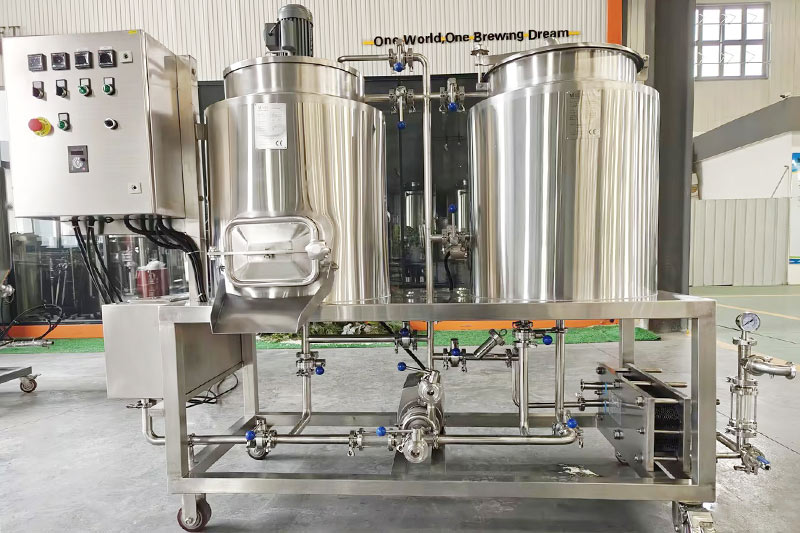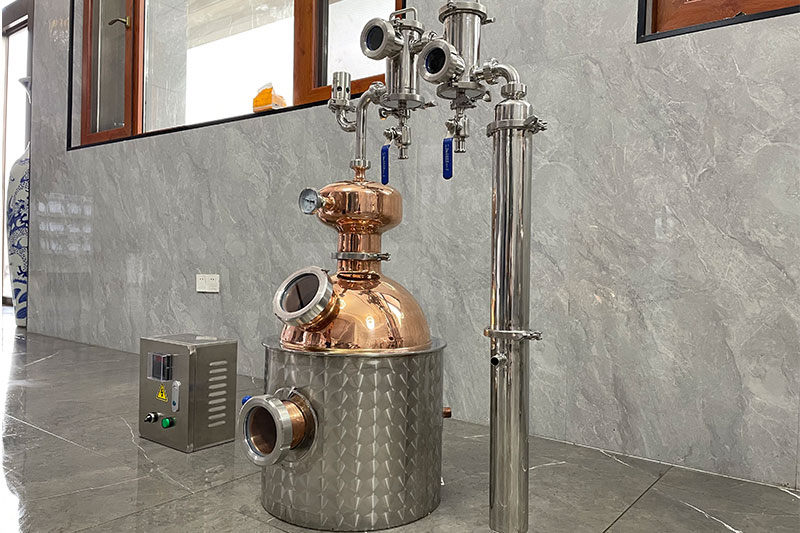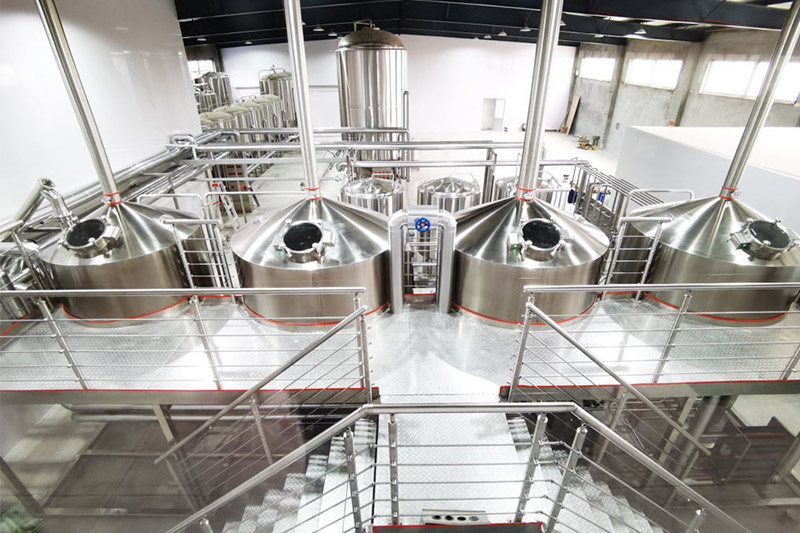Unlock the secrets to perfecting your own beer with the finest brewing equipment! Whether you’re new to home brew or a seasoned brewer, finding the right tools can dramatically enhance your beer making journey. This article reveals how to elevate your brewing experience, offering expert insights and tips for every stage of the beer brewing process.

What Equipment Do You Need to Start Home Brewing?
Starting your home brew adventure can be exciting and rewarding. Here’s a list of essential brewing equipment:
Must-Have Tools:
- Brew Kettle: The foundation of any brewing setup where you’ll boil your wort.
- Fermenter: A vessel where your beer ferments and ages.
- Grain Mill: Essential for cracking grains when doing all-grain recipes.
- Hydrometer: Measures the beer’s density to track fermentation progress.
- Wort Chiller: Helps cool the wort quickly to avoid contamination.
Having these basic tools allows you to brew confidently and successfully.
[Explore our professional-grade beer-brewing-equipment for serious home brewers.]
How to Choose the Right Brew Kettle for Beer Making
A brew kettle is central to the brewing process, and choosing the right one can significantly impact the quality of your beer.
Considerations:
- Size: A 10-gallon kettle is versatile for most home setups, allowing you to brew various batch sizes.
- Material: Stainless steel is preferred for its durability and heat distribution.
- Features: Look for kettles with built-in thermometers and weldless fittings for ease of use and precision.
Investing in the right kettle will improve your brewing efficiency and the quality of your final product.
Why Is Temperature Control Crucial in Brewing?
Temperature control is vital in brewing because it directly affects yeast activity and, ultimately, the flavor and alcohol content of your beer.
Key Points:
- Fermentation Temperature: Each yeast strain has an optimal range that influences flavor development.
- Consistency: Maintaining a stable temperature prevents off-flavors.
- Control Methods: Use temperature controllers or insulate your fermenters for precision.
Proper temperature control ensures that your brews maintain consistency and desired characteristics.
What Role Does a Fermenter Play in the Brewing Process?
The fermenter is where the magic of beer-making happens, transforming wort into beer through the process of fermentation.
Functionality:
- Environment: Provides a controlled environment for yeast to ferment sugars into alcohol and CO2.
- Designs: Options range from conical to carboys, each offering various benefits like ease of cleaning and yeast collection.
- Materials: Commonly made from glass, plastic, or stainless steel.
Choosing the right fermenter can elevate your brewing by providing better control over the fermentation process.
[Check out our advanced conical fermenters for precise fermentation control.]
How to Use a Grain Mill for All-Grain Brewing
A grain mill is crucial for breaking down malted grains, allowing the enzymes to convert starches into sugars during the mash.
Steps to Use:
- Select Your Grain: Use high-quality malted grains for the best flavor.
- Adjust the Mill: Set the mill’s gap for the right crush size—usually slightly cracked but not pulverized.
- Mill the Grains: Run the grains through the mill attached to your work surface or cart.
With all-grain brewing, a precise grain mill can affect the efficiency and flavor profile of your beer.
The Importance of Sanitation in Home Brewing
Sanitation is arguably the most critical step in the brewing process. It’s essential for preventing bacterial contamination, which can ruin an entire batch of beer.
Sanitation Techniques:
- Clean Equipment: Always clean and sanitize all equipment before use.
- Use Food Grade Sanitizers: Ensure products are safe and effective for brewing environments.
- Proper Storage: Keep sanitized items covered or stored in clean environments.
By prioritizing sanitation, you ensure that each batch is uncontaminated and great-tasting.
How a Wort Chiller Enhances Your Brewing Process
A wort chiller speeds up the cooling process post-boil, minimizing the risk of contamination and improving clarity.
Types of Chillers:
- Immersion Chillers: Coil submerged directly in the wort.
- Counterflow Chillers: Wort and cold water flow in opposite directions for faster cooling.
- Plate Chillers: Compact and efficient, can cool large gallon volumes quickly.
Incorporating a chiller means clearer beer and a faster brew day turnaround.
[Discover our efficient wort chillers for rapid cooling solutions.]
Essential Brewing Kits for Beginners
Brewing kits are perfect for beginners who want to dive into brewing without missing a beat.
Recommended Kits:
- Starter Kits: Include essential tools like fermenters, bottles, and hydrometers.
- All-In-One Kits: Feature everything needed to make beer at home, including ingredients and instructions.
- Advanced Kits: For those ready to tackle more complex brews like lagers or sours.
Getting started with a kit means you’re fully equipped to learn to brew with confidence.

[Our home brewing starter kits are ideal for beginners looking to start brewing immediately.]
Where to Find High-Quality Beer Brewing Supplies
Finding reliable sources for your beer brewing equipment is crucial for quality and performance.
Top Features to Look For:
- Variety and Selection: A wide range of products to cover all aspects of brewing.
- Quality Assurance: Products that ensure high performance and durability.
- Customer Support: Knowledgeable staff ready to help with order support and advice.
[Shop our wide selection of beer brewing equipment for quality gear.]
Ready to Upgrade Your Brewing Equipment?
Upgrading your brewing equipment can significantly improve your results and brewing enjoyment.
Upgrade Options:
- Electric Brewing Systems: For precise control and convenience.
- Stainless Steel Kettles: Durable and efficient for all-grain brewing.
- Propane Burners: Provide the extra heat needed for bigger batches.
Investing in better equipment opens up new possibilities and efficiencies in your brewing adventures.
FAQs
With a standard 5-gallon setup, you can produce enough beer to fill approximately 50 bottles. As you advance, consider upgrading to larger systems for more significant batch capabilities.
Stainless steel is critical for its durability, ease of cleaning, and resistance to corrosion, making it ideal for both homebrewers and commercial brewers.
Yes, many pieces of beer brewing equipment are versatile enough to be used in wine making. However, separate equipment for specific processes can help prevent flavor cross-contamination.
It’s essential to sanitize your equipment before every brewing session and after every use to prevent contamination and ensure the purity of your beer.
While not strictly necessary, a wort chiller speeds up the cooling process, helps avoid potential infections, and can improve the clarity of your final beer.
Conclusion
Key Takeaways:
- Essential Equipment: Ensure you have the basics like a kettle, fermenter, and wort chiller.
- Quality Over Quantity: Invest in stainless steel tools for durability and efficiency.
- Temperature Control: Crucial for consistent results in fermentation.
- Sanitation: The cornerstone of successful brewing.
- Upgrade Your Gear: Take your brewing to the next level with electric systems and advanced kettles.
Ready to make the leap into advanced brewing? Contact us today to discuss your brewing needs and explore our comprehensive range of beer brewing solutions!

